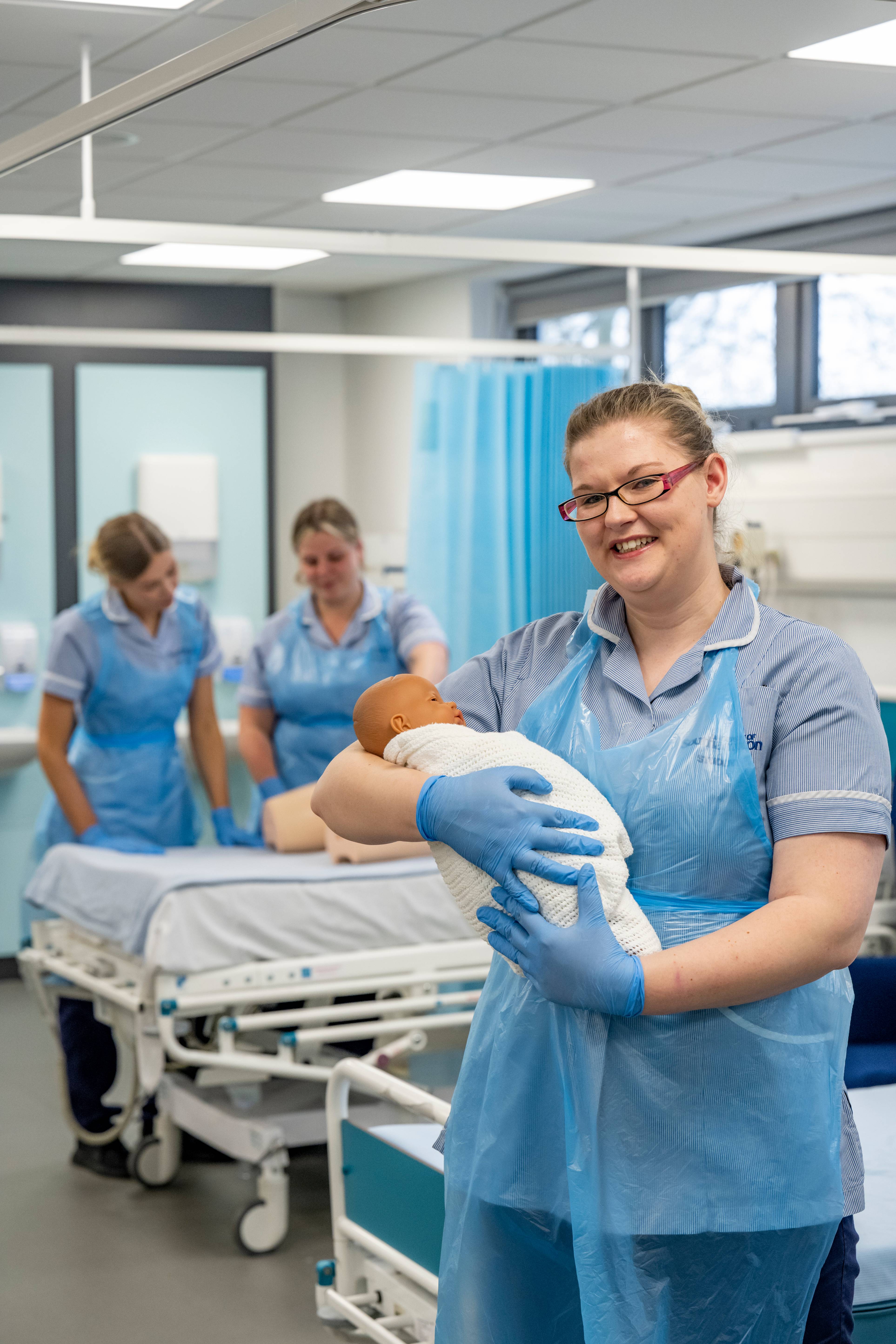Where are my placements likely to be?
Placements will be in one of the four NHS Trust’s we have partnership with; University Hospital Southampton NHS Foundation Trust, Portsmouth Hospitals University NHS Trust, Salisbury NHS Foundation Trust and Hampshire Hospitals NHS Foundation Trust. You will be asked your preference of which Trust you would like to work at, however, placement capacities mean that your first choice cannot be guaranteed. During your programme you may work at more than one of the Trusts listed.
What areas of practice will be included in my placements?
Your placements will see you work in both the hospital environment and in the community. You will visit families in their homes, at community hubs and at GP surgeries with community midwives. In your second and third year you will take responsibility for a small caseload of women and pregnant people.
How am I supervised?
You will be supervised by a Practice Supervisor and Practice Assessor from the organisation for which you work. A typical Practice Supervisor and Practice Assessor will be a NMC registered midwife who has received training for the role. Please note that they will not always be with you. If you have a problem you should first go to your Practice Supervisor, then your Practice Assessor. If you do not get satisfaction from either of these, please contact your Academic Assessor, Student Link Midwife or the University Practice Co-ordinator.
How am I assessed?
Throughout your placements you will have to work for the stated number of weeks and demonstrate proficiencies in a range of areas to the satisfaction of your Practice Supervisors. These will be recorded in your assessment of practice document, the Midwifery Ongoing Record of Achievement (MORA), which you are given in your first year and keep for the duration of your programme. At the end of each placement, you will have an assessment with your Practice Assessor who will use feedback that you collect after each shift from your Practice Supervisors and service users to award you either a pass or fail, and provide a grade descriptor based on your practice.
What hours will I work?
You will be expected to work the normal shift pattern of the organisation to which you are sent. This includes weekends, night shifts and a range of 8-13 hour days shifts. You may also be required to be “on call”. You will be required to work public holidays if your placements fall during those times, however you will not be expected to work over the Christmas and New year break.
How will I get to my placements?
It is your responsibility to get to and from your placements. Having a car is a very good idea, especially for community placements, but is not a requirement.
What if I am ill or have an emergency?
If you cannot get to your placement on any given day you must contact your place of work as soon as possible to let them know you will be absent, record the absence on your time sheet, and also email your Academic Assessor to inform them about your absence.
How do I make up the hours if I am absent?
This depends on how many hours you have missed. It may be possible to make up the hours by picking up an extra shift. If this is not possible then you should work with your Programme Lead to find an appropriate way to make up the time lost.

At Salisbury, I feel like I am a part of something that is bigger than myself, like a crucial part of the maternity team. I have always felt valued, respected and appreciated by the community teams and the maternity department within the hospital. I would highly recommend anyone to work within Salisbury Hospital Maternity Department.
What's related
Hours in practice
2,300
Links to external websites
The University cannot accept responsibility for external websites.